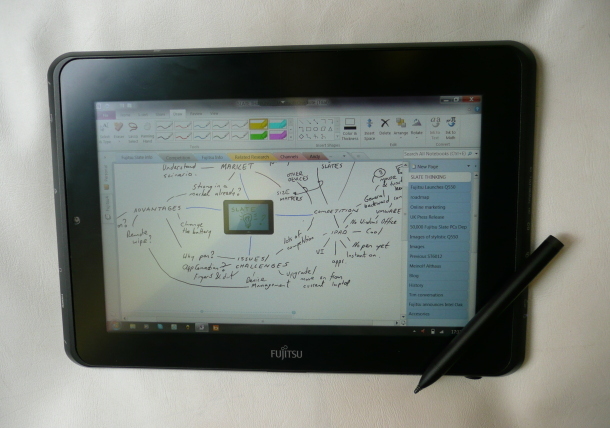iPads in the enterprise: The 10 areas where business apps have come of age

Just be careful when you're rolling them out...

Enterprise software companies are retooling their offerings for tabletsPhoto: Jo Best
More proof, if proof were needed, that iPads are more than just a gadget for consumers.
According to analyst house Gartner, enterprise applications for the Apple device and other tablets are now entering a second phase. While the initial run of business iPad apps were aimed at improving personal productivity, the second is defined by manageable, secure apps able to support key initiatives.
Initially sold as a consumer proposition, tablets went on to make their way into the enterprise by the back door - execs would buy them, bring them into the workplace and use them within the organisation. Now, tablets are seeing more widespread business adoption.
"Leaders are finding legitimate business use and redefining processes for 'ready at hand' moments where other computer types are not as well adapted. CEOs often prefer tablets for distributing material for board of directors meetings. Salespeople are using them in client-facing situations; sales configuration tools help close more business and reduce error rates; sales and marketing leaders are using them as dashboards to their business; and marketers are designing campaigns around them," Gartner VP David Willis said in a statement.
Where users have led, vendors have followed - with software's biggest names embracing tablets and redesigning their offerings for the form factor, Willis said.
Business apps for tablets are now divided into 10 categories, according to Gartner:
- Sales automation systems for customer collateral, sales presentations and ordering systems.
- Business intelligence: analytical and performance applications with management dashboards.
- Containerised email to separate corporate messaging environments from personal email.
- Collaboration applications for meetings.
- File utilities for sharing and document distribution.
- General corporate/government enterprise applications for CRM, ERP, SCM and messaging.
- Medical support systems for doctors, nurses and physical therapists.
- Hosted virtual desktop agents to provide secure remote operations of traditional desktop applications and environments.
- Social networking applications with intelligent business insight.
- Board books for secure document and report distribution.
Despite a world of tablet apps now open to them, businesses are advised to proceed carefully.
"There are many highly visible 'quick wins' for tablets such as board books and sales automation, which the CIO can use to break new ground. But not all tablet apps are created equal from an enterprise perspective. Businesses must evaluate tablet apps based on functionality and business process integration, user factors, system integration, management and security, application architecture and vendor viability," Willis said.
And, despite their consumer heritage, Gartner recommends that businesses get a handle on slates before their users do - installing a suite of corporate applications and utilities by default. That way, enterprises can be confident the way tablets are used is in line with industry regulation, corporate governance and proper software licensing.